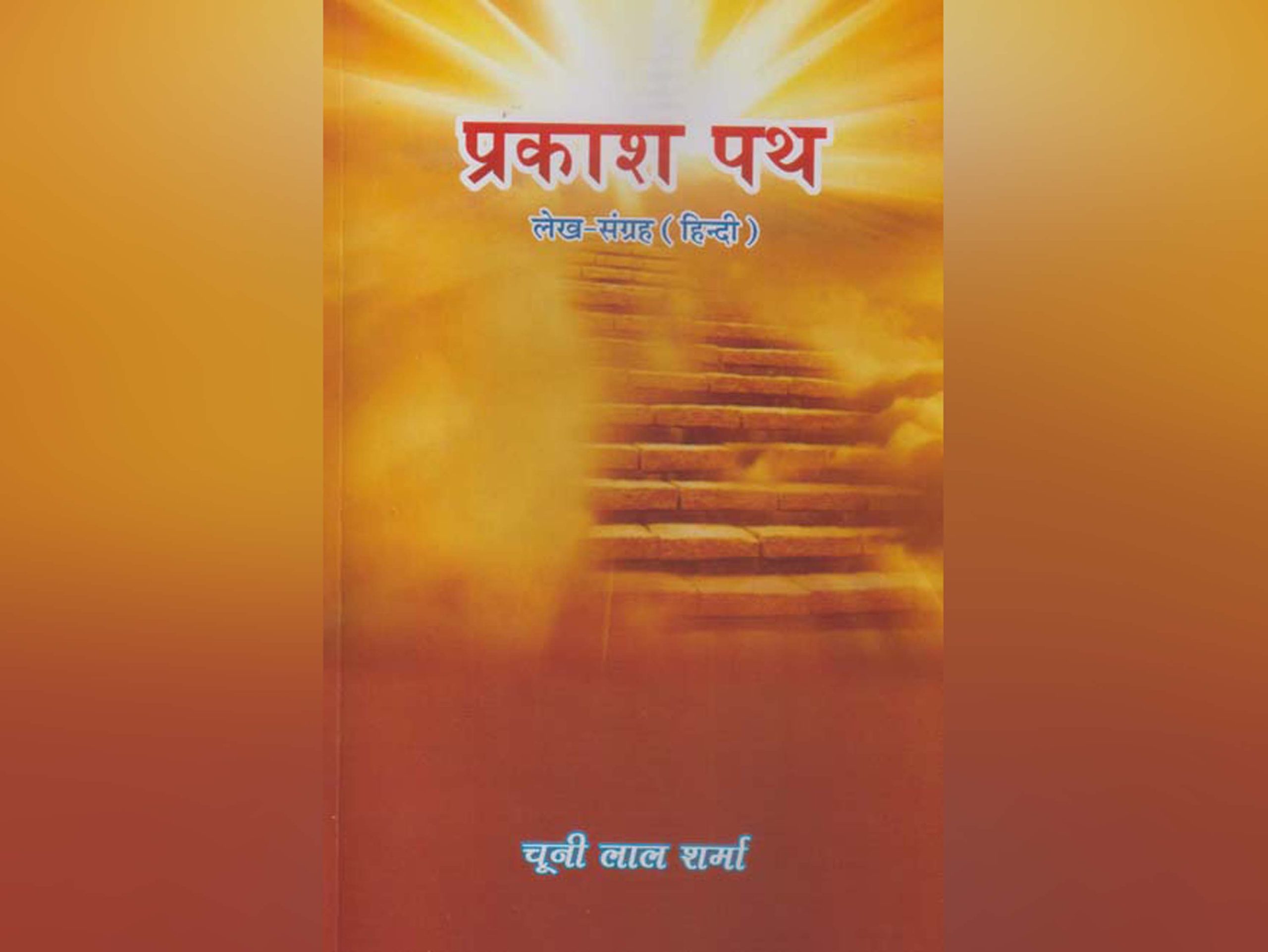O P Sharma
Book Title: ‘Prakash Path’ (Hindi)
Author: Chuni Lal Sharma
Publisher: Highbrow Publications, Jammu
Year: 2024
Pages: 215
Price: Rs. 499
This engaging 215-page Hindi book, ‘Prakash Path’, authored by former Programme Executive and AIR broadcaster Chuni Lal Sharma, is a compilation of motivational and inspirational essays. It features 64 short essays written in accessible, relatable language that resonates with a general audience.
In today’s fast-paced, materialistic society, the focus on human values often diminishes. Relationships, kindness, empathy, cooperation, and morality—cornerstones of our cultural and religious heritage—are frequently sidelined in pursuit of quick success. While modernity encourages shortcuts to achieve personal goals, we must remember that true virtues and moral values form the lasting foundation of any society.
Meaningful Messages
The essays within ‘Prakash Path’ cover a diverse range of themes including history, culture, scripture, festivals, Gandhian philosophy, and nationalism. Each essay title is striking and imparts significant lessons. Notable titles include: “Kaise Bhool Sakte Hein Hum, Woh Baisakhi”; “Mansik Khushi Khareedi Nahi Jaati”; “Sadsangat Mud Mangal Moola”; “Chot Lage Toh Yaad Aati Hai Maa”; “Aaj Kare So Ab”; “Bharat Mein Rashtravaad Ka Punarjagran”; “ParMarth Mein Hain Gandhi Ji”; “Sab Ko Sukhi Banao”, among others.
Let’s explore some of these titles and the insightful messages shared by the author.
“Kaise Kaise Bhool Sakate Hein Hum Woh Baisakhi” (How can Baisakhi be forgotten?) emphasizes the importance of cultural memory. Although we celebrate this festival joyously, April 13, 1919, also marks the tragic Jallianwala Bagh massacre, reminding us to honor those who fought for freedom:
Sookh Gaya Hai Jo Lahoo Shaheedon Ka
Use Hamesha Yaad Rakhen To Baat Bane
(The martyrdom of freedom fighters should never fade from memory)
“Mansik Khushi” reflects Sharma’s view that true happiness comes from within and is a product of contentment—not wealth:
Mansik Khushi Khareedi Nahi Jaati
Muft Milti Hai Santosh Se Yaaro
(Peace of mind cannot be bought; it arises from a sense of service and satisfaction).
The essay “Satsangat Mud Mangal Moola” underscores the idea that good company cultivates lasting happiness and safeguards against moral and mental decay, stating:
Satsangat Mud Mangal Moola
Soi Fal Sidhi Sab Dhan Phoola
(Spiritual companionship brings lasting joy).
Lessons of Life
“Chot Lage Toh Yaad Aati Hai – Maa” poignantly reminds us of a mother’s everlasting love and support. Regardless of age, a mother’s nurturing presence is a constant source of blessings and comfort.
“Aaj Kare So Ab” (Do It Now) encourages seizing the moment and prioritizing meaningful actions over trivial pursuits. As Saint Kabir wisely noted:
Kal Kare So Aaj Kar, Aaj Kare So Ab
Pal Mein Parley Hogi, Bahuri Karega Kab
(Prioritize good deeds today; tomorrow may be too late).
“Prakash Path” also delves into themes of nationalism, urging readers—especially the youth—to remember our historical struggle for freedom. Although the First Battle of Independence in 1857 was lost, it ignited a renewed sense of nationalism leading to independence in 1947. The sacrifices made by countless patriots remind us to honor our freedom fighters with:
Maan Barha Desh Ka Jab Tiranga Charha Asman
(We all salute when the Tricolor flies high).
The book also features four essays on Mahatma Gandhi and his enduring principles, emphasizing their relevance in today’s world and for future generations.
The concluding essay, “Sab Ko Sukhi Banao” (Make Everyone Happy), advocates for communal happiness, echoing the sentiment that one person’s joy can lead to the joy of all:
Apne Sukh Ko Vistrit Kar Lo
Sab Ko Sukhi Sukhi Banao
(Widen your happiness to make everyone happy).
Lastly, Lord Krishna suggests in the Bhagavad Gita (8.24 and 8.25) that the path of light enhances our potential, while the path of darkness diminishes it.
“Prakash Path” was launched on November 8, 2024, at a vibrant event, earning the praise of being a “lighthouse for society.”
Chuni Lal Sharma’s work stands out as a beacon of compassion, tolerance, and humanity. The title “Prakash Path” signifies a vibrant journey through the darkness, guiding us toward our aspirations. The publisher has executed excellent production, while Sharma deserves accolades for his inspiring storytelling. This book is a must-read for all, especially students and the younger generation.
([email protected])


Leave a Reply